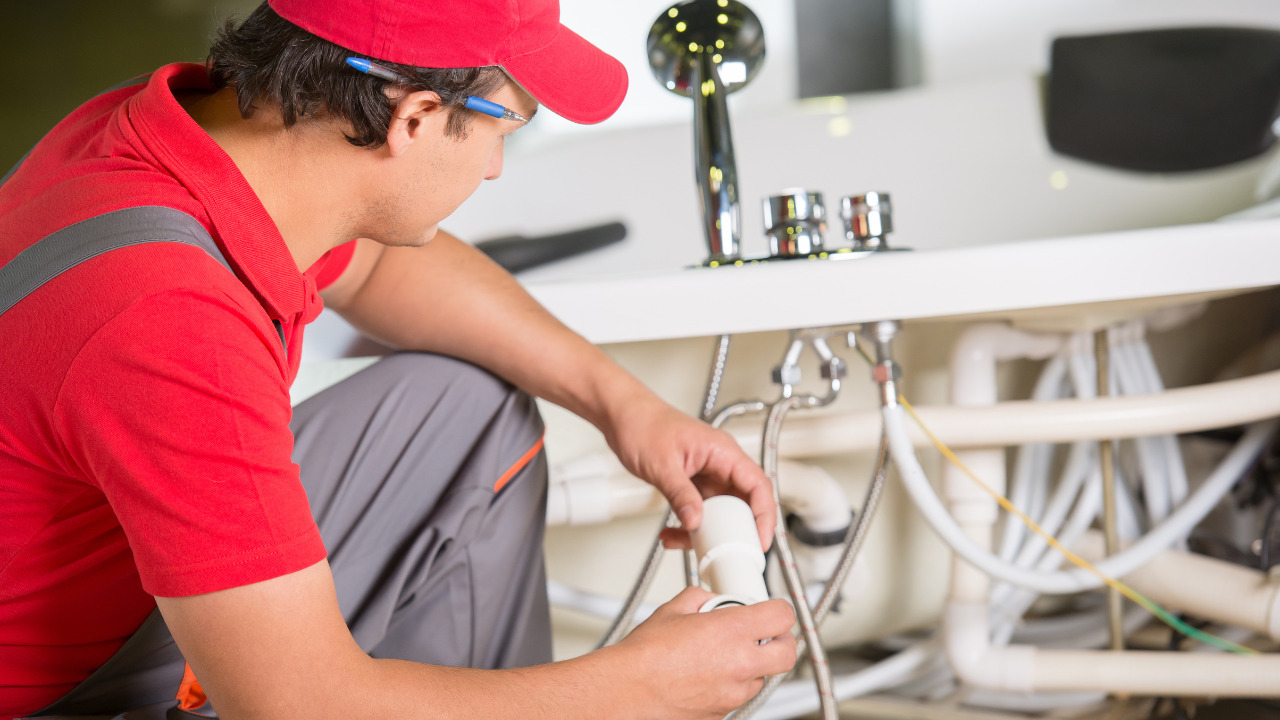Even though water seems like a relatively harmless substance, it can do significant damage to the flooring, drywall, and other porous building materials in your home. Leaking pipes can dampen the wood in your home attracting termites and ants or cause mold and mildew to develop on your walls.
Fixing water damage can be costly even with the help of insurance coverage so the best way to avoid water damage in your home is to address potential problems well in advance to prevent water damage from occurring in the first place.
Table of Contents
Investigate and Fix Leaks Promptly
You need to be on top of water leaks in your home with the help of water detection devices. These small electronic devices sound an alarm when their sensors detect moisture and can notify you of low moisture levels and slow leaks that often go unnoticed.
Taking a closer look at your water bill can also help you assess whether you have leaks in your home especially if your usage suspiciously increases without explanation.
Clean Gutters and Downspouts
Dirt, debris, and leaves can accumulate in your home’s gutters and keep water from draining correctly. Instead of flowing down the downspout, accumulated water can back up, overflowing onto your home’s siding, causing damage to both the siding and your foundation.
You need to clean your gutters every few months and unblock your downspouts to ensure that water flows through effectively.
During winter, remember to clear out ice dams as soon as you notice them to prevent standing water from damaging your roof and ceiling. Installing gutter guards and other protective attachments can help prevent dead leaves, branches, and nests from accumulating on your gutters allowing rainwater to flow away from your home.
If your home is already showing signs of water damage, you need to hire a professional water damage restoration service from reputable companies like First and Last Restoration in Baltimore.
Switch From Copper Pipes to PEX Pipes
If you have an old home that has copper pipes which have been the standard in many homes for decades then you need to consider switching them out for plastic PEX pipes.
Copper pipes, especially those that are over 20 years old, are susceptible to pinhole leaks, a common issue that can go unnoticed until it starts causing damage to your walls. They are also prone to corrosion and their soldered joints can fail wreaking havoc on your ceilings and the inside of your walls.
Switching to PEX pipes reduces the chances of pinhole leaks in your walls because plastic is not prone to corrosion.
Plastic pipes also make it easier to deal with plumbing maintenance tasks because you can easily replace sections of pipe in your home with PEX-related tools and materials. Since PEX can be matted with copper, if you cannot afford to re-plumb your entire home and switch to plastic pipes all at once, you can progressively change out sections of copper for PEX pipes whenever you have access to a wall or ceiling.
Know Your Water Main
Water enters your home through the water main first before being distributed to the pipes in the rest of your house making it the most important plumbing feature according to experts. Your water main shutoff will most likely be located in your basement along an exterior wall and can be at a different point depending on the design of your house.
Knowing where your water main shutoff is can help you turn off the water right away in a plumbing emergency to minimize damage before addressing the issue. If you are leaving your home for an extended period of time, it’s best to turn off the water at your water main to prevent any potential leaks from going unnoticed and causing a significant amount of damage while you are away.
Check For Leaks In Caulk and Grout
Your home can be prone to water damage if your grout is missing or cracked. It’s important that you check your bathroom walls as well as other tiled rooms in your home and repair any cracked caulk where water can accumulate and damage your walls. You need to remove broken and loose pieces and replace them to stop water from seeping behind your tiles and leaking into your floors resulting in extensive water damage.
Endnote
Remember to check and maintain your appliances that use water because they are the most common cause of in-home water damage. Your washing machine and refrigerator hoses can become leaky with time and cause unnoticed water damage beneath them. Replacing the hoses of these appliances about every five years can help you avoid the expensive cost of repairing water damage in your home.





